
Source of illustration: http://www.masicile.com/sicile-armee-italienne-145.html
It is one of the big challenges we face and has divided the media. It has enriched many societies, but migration and the growing cost to communities of accommodating large-scale inflows of people raises challenging questions.
Not a left or right issue and not a question of racism
This is not a left or right issue or racist. It is about social and environmental sustainability. After presiding over a system in chaos, with common sense in short supply, the UK Government claims the continual pressure of inward migration is inevitable and sees no real limits.
UK: Immigrant numbers soared with Labour in power
Since Labour came to power, Home Office figures show the number of foreign nationals given UK passports has soared. By 2050 the Government Actuary’s Department estimates the UK’s population could rise to 90 million, 70 per cent of this due to inward migration - enough to fill a major city the size of Birmingham every five years.
Net immigration topped 300,000 in 2006, three times the average figure in the mid-'90s—a level "unprecedented in our history," according to a parliamentary inquiry in 2008. With the exception of the United States, Britain took in more immigrants in 2006 than any of the world's leading economies, says the Organization for Economic Cooperation and Development. Add to this asylum seekers and an unknown number of illegal immigrants who arrive each year, adding to the estimated 600,000 illegal immigrants already living in the UK. Is this a sustainable policy supported by the environmental lobby? Is this a future we would vote for? We need to know but are not being asked.
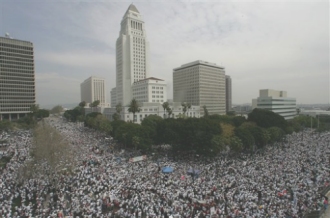 Source of illustration: http://www.seneweb.com/news/article/1468.php
Source of illustration: http://www.seneweb.com/news/article/1468.php
High immigration proponents need to be accountable to community
The supporters for this need to explain how the unprecedented level of opportunist immigration whether through the large increase in work permits, asylum applications or illegal entry can possibly be sustainable in the longer run? This is a legitimate concern for millions of people, whatever their colour and background.
Nearly five million adults of working age in the UK were on out-of-work benefits last year, four million of whom, according to the government's own figures, want to work. Unemployment [1] has jumped to 1.86 million by October 2008 and rising. Over a million young people are not in education, work or training. Yet the Government has more than doubled the number of work permits to non-EU immigrants since 1997 to a record 1 million, despite the unprecedented influx of migrants from Eastern Europe who do not need permits. Many migrant workers are being exploited, depressing wages for employer profit, while taxpayers pick up the cost of low-wage welfare payments.
"Politicians living on borrowed time"
Labour MP and social welfare expert, Frank Field, said: “politicians were living on borrowed time over Britain’s unprecedented and unsustainable levels of immigration, which risked turning the country into a ‘global traffic station’ for migrant workers and amounted to a massive transformation of our population.”
Violence rising
In some London boroughs, which now have immigrant majority populations of over 50 per cent, the proportion of immigrant origin school children is far higher. In towns like Oldham, that have experienced race-fuelled tensions, 14 per cent of the population are Muslim, but the percentage under 20 is much higher, with potential social implications for increasing alienation and parallel societies, in conflict over jobs and cultural values.
A report by London’s Metropolitan Police released in May 2007, in the wake of growing fears about knife and gun crime, found that asylum seekers and migrants from failing states like Somalia were contributing to gang warfare and were having “a disproportionate negative impact on their peer groups.”
New settler countries seriously environmentally stressed
For many years there was space in the Americas and Australia to absorb large immigration flows, but population growth leading to growing environmental stress across the world must cause us to think where all this is leading.
USA
Even in the land of immigrants – America, the rate of immigration is now a growing concern. Despite a long held belief that the United States is a land of endless frontiers, since the early 1970s the US population has risen by an astonishing 100 million – nearly a third - with over a million new legal migrants coming in every year and a further half million illegals melting into the US population annually, according to the US Census Bureau. Figures from the US Border Patrol suggest the number of illegals is much higher, says Virginia Dean Abernethy, head of the US-based organisation, Population, Environment Balance.
Around 1.8 million illegal immigrants are apprehended each year by the Border Patrol, with around 70 per cent getting in undetected on their first or second attempt, according to the director of the Center for Comparative Immigration Studies, UC San Diego.
In California, taxpayers have protested at the welfare costs for so many new immigrants who have moved into the state. A US government study found this was costing each household $1,178 more in tax every year. Economist, Lester Thurrow, in the 1990s calculated that maintaining the quality of infrastructure requires a nation to commit 12.5 per cent of its GDP for each 1 per cent of population growth.
Trends in immigration
By 2050 the United Nations projects the U.S. population will be over 400 million – some say much higher. Writing in Newsweek in July 2003, former UN director Joseph Chamie observed: “We're seeing enormous growth coming about because of migration. We project 80 percent of the projected growth of the U.S. population in the next 50 years is due to migration, immigrants and their descendants.“ With America’s appetite for consuming a large amount of the world’s resources, this is not good news for what remains of the planet.
The US Center for Immigration Studies found that US Census Bureau figures for 2002 [Is there any update on this?] showed that women in the top-10 immigrant-sending countries living in the United States, collectively had 23 per cent more children than women in their country of origin. Mexican immigrants in the United States, for example, had 3.5 children per woman, compared to 2.4 in Mexico, confounding views that higher living standards necessarily lead to lower fertility.
The UN predicts that to keep up with a rapidly expanding global population, one billion new jobs need to be created over the next decade just to maintain current employment levels. With many of the world’s poorest countries already suffering huge unemployment and some of the highest birth rates, even the medium-term outlook is unsustainable.
The movement from countries that, for many reasons, do not provide sufficient opportunities for their people to countries that provide a better life is understandable but will have major social and environmental consequences.
We need more than band-aid solutions
In this post cold war world, we need more than ‘band aid’ campaigns and must focus real political will on tackling global environmental loss, the bloody turf wars, economic problems, overpopulation and under employment that leads to poverty and despair.
The United Nations 2006 Revision of population estimates finds that between 2005-2050, eight countries are expected to account for half of the world’s projected population increase: India, Nigeria, Pakistan, the Democratic Republic of Congo, Ethiopia, the United States, Bangladesh and China.
Between 2005-2010, net immigration in seven countries will more than double population growth in Belgium, Canada, Hong Kong, Luxembourg, Singapore, Spain, Sweden and Switzerland. Major countries of net emigration are projected to be China (329,000 annually) Mexico (306,000), India (241,000), the Philippines (180,000), Pakistan (167,000) and Indonesia (164,000).

Source of illustration: http://www.migrationheritage.nsw.gov.au/exhibitions/halfaworldaway/
Australia
Some people applaud Australia’s immigration system. They fail to say that Australia is letting in more immigrants each year than the country’s total annual birth rate. This, in a country that has suffered years of devastating drought, that leading Australian scientists say is set to get much worse, as its booming population competes for fragile agricultural land. While Prime Minister Kevin Rudd swept to victory on a 'green agenda' the country continues its open immigration policy for its reckless 'growth' agenda - putting even more pressure on food resources. From December 2006-7 the population grew by 338.600, with 163,600 births over deaths and net immigration of 175,000.
Canada
Similarly in Canada, where much of the country is too barren to support people, the Government is letting in around 260,000 immigrants a year – over twice the 116,000 increase in the country’s annual birth rate - and all four political parties want it to reach 330,000. According to the Fraser Institute’s Grubel Report, the cost to the taxpayer is $18.3 billion per year in services in excess of tax revenues paid by immigrants.
UK: Asylum applications
In 1985 there were just 4,390 asylum applications to the UK. Now, politicians, paralysed by the huge growth of the asylum-seeking industry, concede far greater numbers as normal, re-branding it as a ‘managed’ immigration policy. Home Office statistics show that by 2002, the number of asylum applications was 84,130, excluding dependants. ‘Grants of settlement’ in 2003, including family formation boosted numbers to 140,000 in further ‘chain migration’. After a fall, asylum claims have since risen to a three-year high, with 25,000 in the 12 months to June 2008, while removals are at a six-year low and the backlog is rising fast.
Even the Conservatives’ pre-election plan to allow 20,000 asylum seekers and their dependents to come to Britain, in further chain migration, is equivalent to building a town the size of Truro in Cornwall or Godalming in Surrey every year. This is still environmentally unsustainable in a country as densely populated as Britain.
All populations age
With typical short sightedness, ministers tell us we need more immigration and higher birth rates to support aging populations in Europe. Migrants get old too and need support. Are we to believe that ever-increasing populations are needed to suit the balance sheets of the pensions industry rather than the health of the planet?
No real debate
There has been no real debate of these vital issues, the supposed benefits of which are wide open to challenge. No one wants to offend fundamentalist visions to “go forth and multiply,” while the left now baulks at confronting the connection between high population growth, immigration and many developing countries, because it may offend ‘multi-culturalism.’
The UN estimated in 2004 there were over one billion slum-dwellers in the world from a global population of 6.5 billion and rising. When politicians call for continual economic growth in gross domestic product, rather than income growth per person, that would make people better of, they miss the point. Countries with small or stable populations can produce strong growth. If economic well-being depended on rising populations, Africa, Indonesia and the Philippines would be rich. Innovation and specialisation are more important.
Through history immigrants have contributed greatly to economic enterprise, but the scale and shape of current migration is putting increasing burdens on welfare systems. Whatever Governments claim are the economic benefits of immigration, figures from the UK Refugee Council say immigrants are six times more likely to be unemployed and suffer from disproportionately high levels of social exclusion.
UK Immigration tax-burden
Research published in June 2004 by the Association of London Government found that 45 per cent of ethnic minority children in the capital are in workless households. Local government’s High Ethnicity Authorities’ Group also recognises the significant extra cost of funding the educational and social needs of highly diverse communities. In Europe, the USA and Canada similar facts unfold.
The UK’s Local Government Association warned that “Councils find it difficult to provide services for growing populations that are not recognised by the official statistics and for which they, therefore, receive no financial help from Whitehall” – increasing the local council tax burden.
Costs obfuscated
There is a danger too that government will obscure real immigration costs, with the amnesty for many UK asylum seekers now regularised into mainstream benefit statistics. In a further move, the Office for National Statistics confirmed in April 2004 that it had reduced the amount of information provided about ethnic minorities and non-British workers.

Source: http://conservativehome.blogs.com/torydiary/2006/08/index.html
What is going on?
We read about scam health tourism to the UK for free treatment and find that immigrants were not being screened on arrival for diseases like TB and AIDS, potentially costing the health service billions in drug treatment.
We hear of illegal immigrants being given rail tickets to make their own way to reception centres because of immigration staff shortages. Yet, former Chancellor, now Prime Minister Gordon Brown said he was cutting 40,000 civil servants to save money. What is going on?
Crime hits us all, not least in vulnerable communities, but immigration has seen increases in drug-related crime, new terrorist concerns and unprecedented levels of black on black street gun violence. Since Jamaican gangsters moved into Bristol in late 2000, intent on fuelling the market in crack cocaine, police statistics showed a 72 per cent increase in serious crime. The impact has spread across the UK.
Crime, Immigration policy, and overcrowded prisons
After being vague as to reasons why prison numbers were at an all time high, the Home Office finally admitted that more than one in eight prisoners in Britain’s overcrowded jails were foreign nationals.
With the outrage over the release of hundreds of foreign criminals who should have faced deportation hearings, it is astonishing that a Home Office news release back in September 2003 promised that: “Refugees or asylum seekers who commit serious offences will no longer be able to rely on the protection of the Refugee Convention as a means to thwart their removal from the UK.” Yet, half of the foreign prisoners released in 2007 were allowed to walk straight onto Britain’s streets. All this is putting unprecedented strain on our penal system, with the Government releasing many prisoners early because of jail overcrowding.
Rate of immigrant imprisonment in EU
Many EU countries have even higher percentages of foreign nationals in their prisons. According to research by the Prison Research Unit at Kings College, London, in the Netherlands 33 per cent of prisoners were non-citizens. In Spain it was 30 per cent, in Belgium, an astonishing 41 per cent, while in affluent Sweden a quarter of the prison population were foreign nationals.
These are things we must face in our efforts to tackle existing inequalities in our society, not bury them in the politics of denial. The government has spent billions over the last 25 years trying to turn round vulnerable urban areas. Yet still we have stressed communities with high unemployment and high crime.
Housing, benefits and large families
A well-briefed asylum industry is running rings around the Government at taxpayers’ expense. A fast track to housing, education, benefits and healthcare is a powerful lure to economic migrants. Research by the Rowntree Foundation found UK benefits made many large families far better off than they could possibly expect if parents were working.
Politicians resist necessary policy change
One of the few more imaginative proposals to emerge has been the possibility of supporting countries to set up asylum processing centres in areas less favoured by the asylum seeking community. This radical idea now seems to have been buried by politicians as unacceptable. If, as is claimed, asylum seekers head for places where they have language affinity, why are many people from countries like the Congo living in London rather than France, and how is it we have asylum claims from India, a long time democracy?
Yet, for asylum seekers given leave to remain in the UK, we could do far more to provide specialist skills with the voluntary sector to help them become key workers in their country of origin.
Time is running out
The safety valve of migration is part of our collective history, but large-scale migration now raises vital social, environmental and economic questions about where the world is going and how we deliver reform and a better life for people wherever they are born. Like most of the key problems of the 21st Century, time to find solutions is running out.
[1]The statements about 'nearly five million adults... on out-of-work benefits' and 'unemployment has jumped to 1.86 million' need explaining for non-UK readers: It is the way we sub-divide UK labor market statistics - 5m are on long-term out of work benefits, such as disability allowance of various categories or just long-term discouraged workers on social security welfare payments with savings of less than £8000. Over this and you can't claim. Many are able and want to work (4m according to stats) but what is called the claiment count currently 1.86m and rising is the weekly welfare benefit to help people signing on as unemployed and actively seeking work. This is around £57 a week for 6 months, plus some help with housing rent and taxes if they are living independently and paying a rent - not a lot in the UK, when you consider asylum-seekers get around £44 a week plus access to free housing, healthcare and schooling. - This is one reason why the UK is such magnet for large families who jump to the top of the housing queue, ahead of single people on the social housing waiting list for years - causing much resentment. All these sub-divides of labor stats were originally done to try and smokescreen rising unemployment figures under the Tories in the 1980-90s.




 January 28, 2009 "Information Clearinghouse" -- California State Controller John Chiang announced on January 26 that California's bills exceed its tax revenues and credit line and that the state is going to print its own money known as IOUs. The template is already designed.
January 28, 2009 "Information Clearinghouse" -- California State Controller John Chiang announced on January 26 that California's bills exceed its tax revenues and credit line and that the state is going to print its own money known as IOUs. The template is already designed.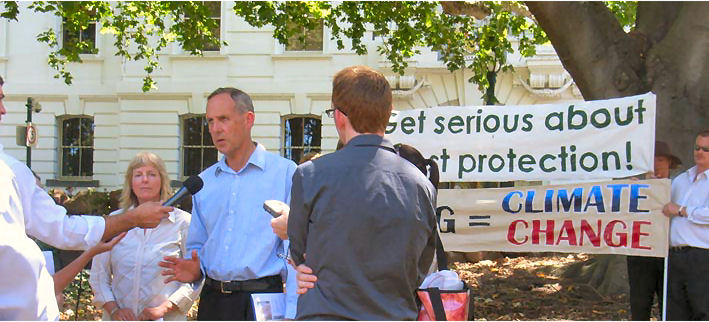

 A Re-Classification of Devilbend is critical to preventing the total demise of wildlife on the Mornington Peninsula: designation change from a ‘Natural Features Reserve’, to a ‘Nature Conservation Reserve’. Interconnecting wildlife corridors, through private land, minimum 200 metres in width and the rigorous preservation and restoration of Devilbend as a central core Reserve are essential.
A Re-Classification of Devilbend is critical to preventing the total demise of wildlife on the Mornington Peninsula: designation change from a ‘Natural Features Reserve’, to a ‘Nature Conservation Reserve’. Interconnecting wildlife corridors, through private land, minimum 200 metres in width and the rigorous preservation and restoration of Devilbend as a central core Reserve are essential.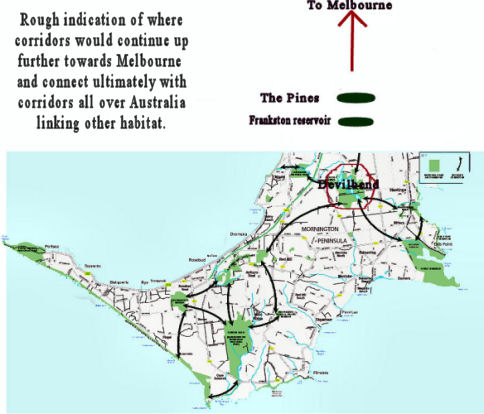


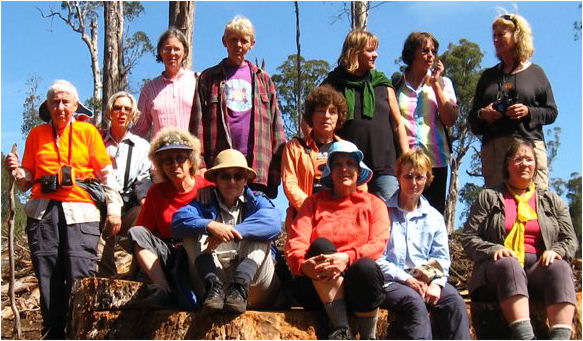
 But, right now, everyone is relying on this little guy:, the Endangered Orbost Spiny Cray (Euastacus diversus), who, if the law is respected, has a right to a buffer-zone of 100 m on either side of the creek he lives in.
But, right now, everyone is relying on this little guy:, the Endangered Orbost Spiny Cray (Euastacus diversus), who, if the law is respected, has a right to a buffer-zone of 100 m on either side of the creek he lives in. Let's imagine, for a moment, how different the public debate would be today if it had been unions that had caused the current economic turmoil.
Let's imagine, for a moment, how different the public debate would be today if it had been unions that had caused the current economic turmoil.
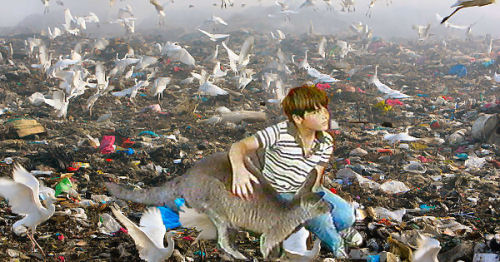

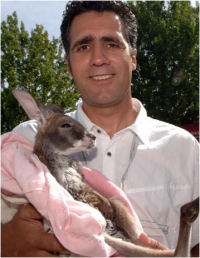
 Imagine living hand to mouth already, barely squeaking by. Come Feb 1 the State has warned you may not see another check for months. No Rent money, no money for food for medicine and even worse for some of the disabled, your Caregiver that comes by daily to feed, clean, shop, and generally make sure you are cared for, isn't coming anymore.
Imagine living hand to mouth already, barely squeaking by. Come Feb 1 the State has warned you may not see another check for months. No Rent money, no money for food for medicine and even worse for some of the disabled, your Caregiver that comes by daily to feed, clean, shop, and generally make sure you are cared for, isn't coming anymore.



 "As a nurse, I was in contact with the ill and the infirm. I knew something about the health and disease of bodies, but for a long time, I was baffled at the tremendous personal problems of life, of marriage, of living, and of just being. Here indeed was a challenge to “build beyond thyself.” Where was I to begin? I found the answer at every door. [...]
"As a nurse, I was in contact with the ill and the infirm. I knew something about the health and disease of bodies, but for a long time, I was baffled at the tremendous personal problems of life, of marriage, of living, and of just being. Here indeed was a challenge to “build beyond thyself.” Where was I to begin? I found the answer at every door. [...] On the one hand, policies of Keynesian, state-guided demand management, and full employment were combined with strategic public ownership. Areas were broadly accepted as being the realm of "natural public monopoly": especially infrastructure and utilities. This included transport services and infrastructure, welfare services, power, water and communications.
On the one hand, policies of Keynesian, state-guided demand management, and full employment were combined with strategic public ownership. Areas were broadly accepted as being the realm of "natural public monopoly": especially infrastructure and utilities. This included transport services and infrastructure, welfare services, power, water and communications.

 Source of illustration: http://www.seneweb.com/news/article/1468.php
Source of illustration: http://www.seneweb.com/news/article/1468.php


 There is nothing innocent about Peru! People in the world imagine Peru and think of Incas and Machu Picchu and its noble past civilisations. However, this era is well and truly over! Peru is still under the thumb of Colonialism, just the names have changed! Corruption is rife, and so is crime and human rights abuses. Mining companies are making a small minority mightily rich, and the indigenous and rightful owners of the land are suffering torture, death and death threats, loss of land, water pollution and loss of food. This is the 21st century, but all there is from the world is silence! Where is justice? This country is being raped, polluted and people are being abused, all quite "legally".
There is nothing innocent about Peru! People in the world imagine Peru and think of Incas and Machu Picchu and its noble past civilisations. However, this era is well and truly over! Peru is still under the thumb of Colonialism, just the names have changed! Corruption is rife, and so is crime and human rights abuses. Mining companies are making a small minority mightily rich, and the indigenous and rightful owners of the land are suffering torture, death and death threats, loss of land, water pollution and loss of food. This is the 21st century, but all there is from the world is silence! Where is justice? This country is being raped, polluted and people are being abused, all quite "legally".
Recent comments